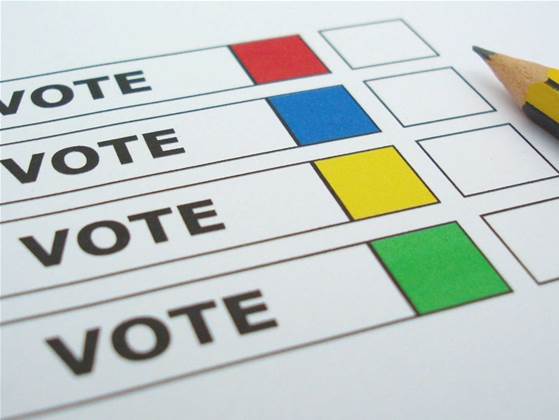Political party Senator Online (SOL) is seeking "everyday Australians" to represent it in the next Federal Election.

Registered in August 2007, SOL claims to be Australia's "first and only internet-based political party", promising to conduct online votes on major issues and act in Parliament accordingly.
The party, which does not have any policies or an official stance, is currently seeking candidates from Victoria, Queensland, Western Australia, Tasmania and South Australia.
It has already appointed 27-year-old NSW Police officer Wes Bas as its candidate for NSW, inking a legal contract that compels Bas to vote in accordance with his online constituents.
If elected, SOL senators will engage with the public via a website that allows constituents to vote on which issues should be raised in parliament, and how the senator should vote on particular Bills.
Any issue receiving over 10,000 endorsements will be included on the website alongside what the party claims to be unbiased information, expert opinion and analysis.
SOL senators will vote in accordance with voters in their state - even if this means voting against another SOL senator - and only vote on Bills if a "clear majority view" is determined by at least 100,000 votes and a 70 percent majority view.
"The very vast majority of senators are just told what to do by their party," SOL founder Berge Der Sarkissian told iTnews.
"Decisions are very rarely left up to a conscience vote ... When do you hear about senators actually crossing the floor?
"We're not talking about running the country; we're talking about representing a majority view to parliament," he said.
David Crafti, president of Pirate Party Australia, said the SOL system seemed more like a petition than a vote, but could "manage to engage the population far better than any petition system that can legally be ignored."
Last month, Greens Senator Scott Ludlam tabled an anti-filter petition that was launched in mid-January by Electronic Frontiers Australia (EFA) and attracted 19,000 printed and online signatures nationwide.
Labor's ISP-level internet filtering proposal and the National Broadband Network feature on SOL's list of ten major issues, alongside the mining tax and asylum seekers, which Der Sarkissian highlighted as issues that may attract significant interest in the site.
"A large part of the reason that the EFA's petition got so few votes per capita is due to the perception that petitions don't achieve anything," Crafti told iTnews.
"Tens of thousands of people took to the street to protest WorkChoices, but it was only defeated at the ballot box.
"[SOL] is an interesting concept, which is effectively to turn representational democracy into direct democracy, with some strong caveats, including a bias against voting for anything that is not extremely popular or well organised."
Crafti raised concerns that SOL may lead to votes being cast because of "an extremely vocal minority" and insufficient communication, as well as the potential for direct manipulation either through tampering or through buying of online votes.
Pirate Party Australia, which also plans to contest the upcoming Federal Election, claims to "stay away from many controversial issues", supporting instead a "limited platform on which most people can agree".
While Crafti noted that it would be impossible for Australians to find representatives who would represent their views precisely, were free to vote their conscience and had a chance of winning, he urged voters to use the preferential voting system so small parties could represent issues of concern.
SOL received between 0.05 and 0.09 percent of each state's votes when it contested the 2007 Federal Election - a result that Der Sarkissian blames on launching only six weeks before the election was called.
After having spent two years "hibernating", SOL relaunched its website, purchased online job advertisements and launched a campaign searching for "Australia's first Facebook iSenator" on 18 May.
The campaign was called off last Monday, with only Bas meeting the minimum requirements of 100 endorsements - via Facebook 'fans' and SOL website votes - and $200 raised.
SOL now plans to appoint candidates for the other states via an application process and its executive committee, which comprises Der Sarkissian, former AIIA member Nick Debenham and public relations professional Zoe Lamont.
"We did poorly in the last election," he said. "We think it's because getting public attention is hard.
"It's [the challenge is] all about getting people to become aware, and we're trying to do this on tens of thousands of dollars, rather than tens of millions."
Public awareness could also be a challenge for SOL's promise to act only if a majority decision is reached.
Der Sarkissian said there would be some flexibility in the 70 percent, 100,000-vote measure in certain circumstances - these would be determined by the elected senators and three-person executive and actions would be detailed in the senators' blogs.
"It's important that we get a large volume of people using the system; I don't believe that would happen unless we get a bill that attracts a significant amount of interest," he said.


_(33).jpg&h=140&w=231&c=1&s=0)


_(20).jpg&h=140&w=231&c=1&s=0)





 iTnews Executive Retreat - Security Leaders Edition
iTnews Executive Retreat - Security Leaders Edition
 iTnews Benchmark Awards 2026
iTnews Benchmark Awards 2026
 iTnews Cloud Covered Breakfast Summit
iTnews Cloud Covered Breakfast Summit
 The 2026 iAwards
The 2026 iAwards












_(1).jpg&h=140&w=231&c=1&s=0)



